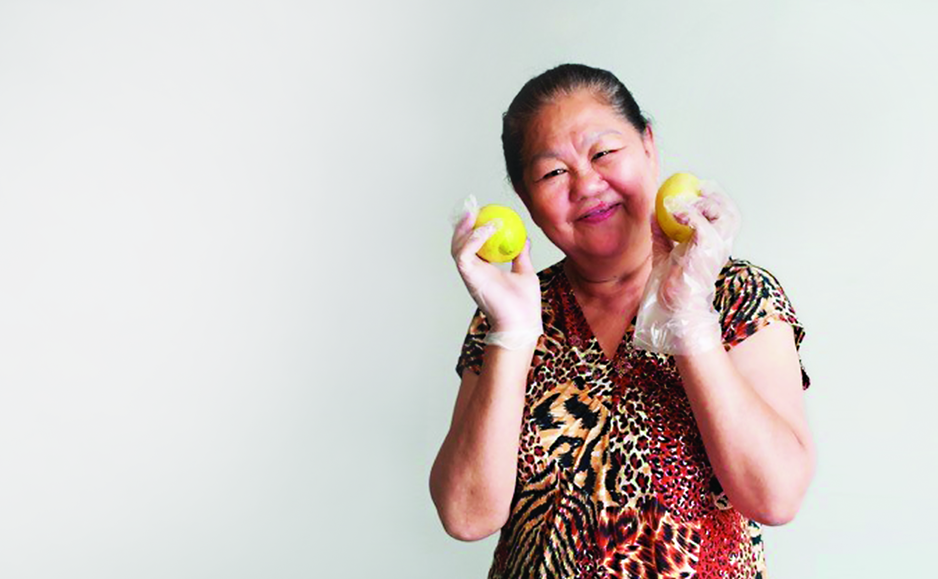Working Past Retirement? No Problem!
Working brings fulfilment to this 67-year-old bar assistant, thanks to the age-friendly practices at The Other Room at Marriott Tang Plaza Hotel.
21 Aug 2019 Interviews Age management

Madam Chua Ai Gwek enjoys working part-time because it enables her to stay mentally and physically active, yet still have time for leisure. She is grateful that her employer is always proactive in addressing her concerns about her working conditions.
Q: Tell us about your typical day.
I work five days a week. My day typically starts at 9am where I wash, cut, and hand-squeeze eight kilograms of lemons and limes to extract their juices. My colleagues and I will then pack the juices into individual bags of about 350ml and leave them in the freezer. The juices will be used by the bartenders for their cocktails on the same night. I leave at 2pm to go home.
Q: We understand your employer redesigned your job to address your concerns about your working conditions. Please share more about that.
Initially, my employer asked if I could work at Orchard Road, where the bar is located. However, it was inconvenient for me as my home is quite a distance away and I wasn’t familiar with that area. Hence, my employer arranged for me to work at the head office in Aljunied instead, which is closer to where I live.
Also, when they learnt that I was not comfortable with working night shifts, they changed my working hours to be in the morning instead. Everything has been really smooth-sailing since. My employer is very patient and always takes the needs of older workers into consideration. Thus, I’m very content with what they have been doing for us. In fact, I have a colleague who’s almost 80 years old and is still happily working here even though she actually doesn’t really need to!
Q: How do you feel about working beyond the retirement age?
It’s been great for me. I decided to continue working because if I didn’t, I’d have nothing much to fill my time with. Having something to do helps keep my mind and body active. Otherwise, I’d just be at home sleeping and watching TV. Here, I have friends to interact with. We share happy moments together and talk about our lives and families. Sometimes, we even buy snacks for each other!
Q: What advice do you have for those who are working late in life, as well as for older workers who are on the fence about working beyond retirement?
Generally, people shouldn’t coop themselves up at home or at work. They should stay active by simply heading out to exercise or going for walks. For the older workers who are undecided, I would tell them to continue working for a while to pass their time. If they find themselves unable to cope with long working hours, they can try talking to their employers to reduce their hours.
Q: What would you like to say to employers who are considering adopting age-friendly practices?
If someone is old but is still able to work, it would be nice to give him or her a chance. I think it is important for employers to really assess their workers’ capabilities. If an older worker is unable to do something, the employer can redesign or adjust the job scope to make it less physically or mentally straining. For example, my eyes and ears are not working as well as my younger colleagues. Upon learning that, my employer made the effort to improve the lighting in the room so that older workers like myself can see better. Such small changes in the environment go a long way to improve the ergonomics and workplace safety not just for the older ones, but also for the rest of my colleagues.
This article first appeared in the October – December 2018 issue of Upbeat.
